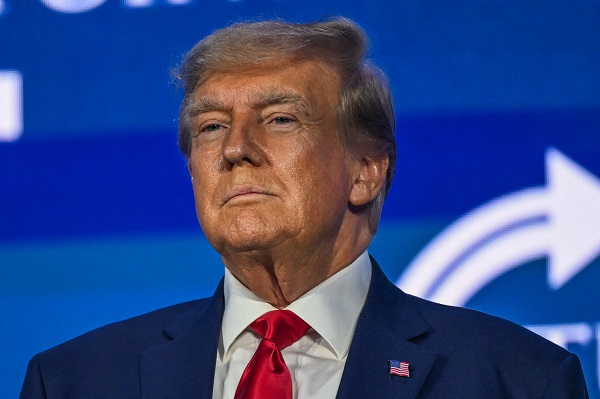The US Supreme Court has declined, for now, to decide whether former president Donald Trump has immunity from prosecution for allegedly trying to overturn the 2020 election.
Mr Trump's efforts to delay the case appears successful, as it must now work through the appeals process.
Special counsel Jack Smith had asked the court to take up the case in an expedited manner.
Mr Trump was indicted on election subversion charges earlier this year.
The court did not explain its decision, instead issuing an unsigned order saying: "The petition for a writ of certiorari before judgment is denied."
The ruling is a setback for Mr Smith, who had asked the Supreme Court to intervene early for fear that the appeals process could delay the start of Mr Trump's trial, which was scheduled to begin 4 March in Washington, DC.
Mr Smith is investigating Mr Trump's alleged attempts to overturn the election leading up to the 6 January Capitol riots.
District Judge Tanya Chutkan has paused the case while Mr Trump appeals. He is claiming he is immune from prosecution because he was acting in his official capacity as president before and during the riots.
Mr Smith argued to the Supreme Court in court filings that the case presented "a fundamental question at the heart of our democracy: whether a former president is absolutely immune" from being prosecuted for federal crimes allegedly committed while in the White House.
Mr Smith argued to the Supreme Court in court filings that the case presented "a fundamental question at the heart of our democracy: whether a former president is absolutely immune" from being prosecuted for federal crimes allegedly committed while in the White House.
"The United States recognizes that this is an extraordinary request," he added. "This is an extraordinary case."
The ruling means the US Court of Appeals for the DC Circuit will have to rule in the case before it can be appealed to the Supreme Court, where it is expected to eventually be heard.
The appeals process may delay the start date of the trial, which prosecutors had hoped to hold before the election.
More to follow…

